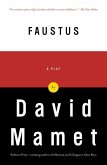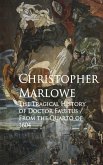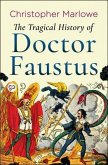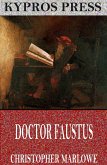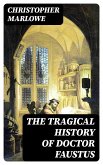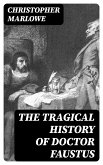Christopher Marlowe's "Doctor Faustus" is a gripping exploration of ambition, power, and the human condition, written in the late 16th century during the flourishing of the English Renaissance. The play follows the tragic trajectory of Dr. Faustus, a scholar whose insatiable thirst for knowledge and desire for transcendence lead him to make a Faustian pact with the devil. Marlowe employs blank verse with exceptional finesse, weaving a rich tapestry of poetic language that captures the psychological turmoil of its protagonist, while also delving into themes of hubris, the limits of human ambition, and the moral ramifications of seeking forbidden knowledge. The work occupies a significant place in the context of Elizabethan drama, reflecting the tensions between medieval morality and the emerging humanist thought of the time. Christopher Marlowe, a contemporary of Shakespeare, was known for his bold experimentation with theatrical form and language. His academic background in classics and theology profoundly influenced his writings, embedding them with rich philosophical inquiries. "Doctor Faustus" may reflect Marlowe's personal struggles with the established moral codes of his era, further intensified by his controversial life and untimely death. This play is highly recommended for readers interested in the complexities of human desire and the consequences of overreaching ambition. Marlowe's masterful linguistic craft and the tragic fate of Faustus resonate across centuries, inviting both scholars and general readers alike to ponder the enduring questions regarding morality, free will, and the nature of existence. Engage with this timeless work and consider the ultimate cost of knowledge.
Dieser Download kann aus rechtlichen Gründen nur mit Rechnungsadresse in A, B, BG, CY, CZ, D, DK, EW, E, FIN, F, GR, HR, H, IRL, I, LT, L, LR, M, NL, PL, P, R, S, SLO, SK ausgeliefert werden.



